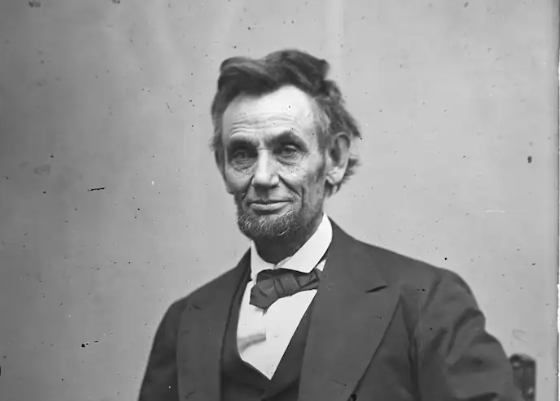
The great-great-grandfather of President Joe Biden, Moses Robinette, a civilian employee of the Union Army, was pardoned by former President Abraham Lincoln, according to documents found at the National Archives in Washington, The Washington Post reported on Monday.
Although Moses Robinette is one of Joseph Robinette Biden’s paternal ancestors from western Maryland, his family line has long been known. However, until his court-martial records were uncovered, not much was known about the guy.
The incident begins on March 21, 1864, during the Civil War, when Robinette and John Alexander, a civilian employee of the Union Army, got into a brawl in one of the mess tents close to Beverly Ford, Virginia.
Alexander suffered knife wounds during the altercation that left him bleeding; Robinette was accused of trying to kill Alexander and imprisoned on the isolated Dry Tortugas islands close to Key West, Florida.
According to the charges, Robinette had become drunk and started “a dangerous quarrel,” which was against military discipline and good order. One of the allegations was assault with “attempt to kill” because a drawn weapon was involved.
The trial transcript quotes Robinette as saying: “I had no ill will toward Mr. Alexander before or after; whatever I did was done in self-defense. He seized me, and if I hadn’t used the tactics I did, I could have suffered major injuries.”
Unconvinced, the military courts unanimously found the defendant guilty on all charges save “attempt to kill.” The Washington Post states that the sentence was two years of hard work in prison.
Three army officers who were acquainted with Robinette petitioned Lincoln to overturn his conviction around the time of Robinette’s arrival on Dry Tortugas. They claimed that Robinette’s sentence was excessively harsh because she had “defended himself and cut with a penknife a teamster much his superior in strength and size, all under the impulse of the excitement of the moment.”
The plea was supported by a recently elected senator from West Virginia, a state that was admitted lately. The senator described Robinette’s punishment as “a hard sentence on the case as stated.” John Nicolay, Lincoln’s private secretary, asked Judge Advocate General Joseph Holt to provide a report and the trial transcripts for the president to peruse.
When Holt’s report was received in late August, Lincoln took his decision and wrote, “Pardon for portion of sentence not carried out. Lincoln, Abraham. 1 September 1864.” Robinette was released from prison shortly after Special Order No. 296 was issued by the War Department.
Following his stay on Dry Tortugas for about a month, Robinette went back to his family in Maryland and resumed farming. In 1903, he passed away at his daughter’s house.
